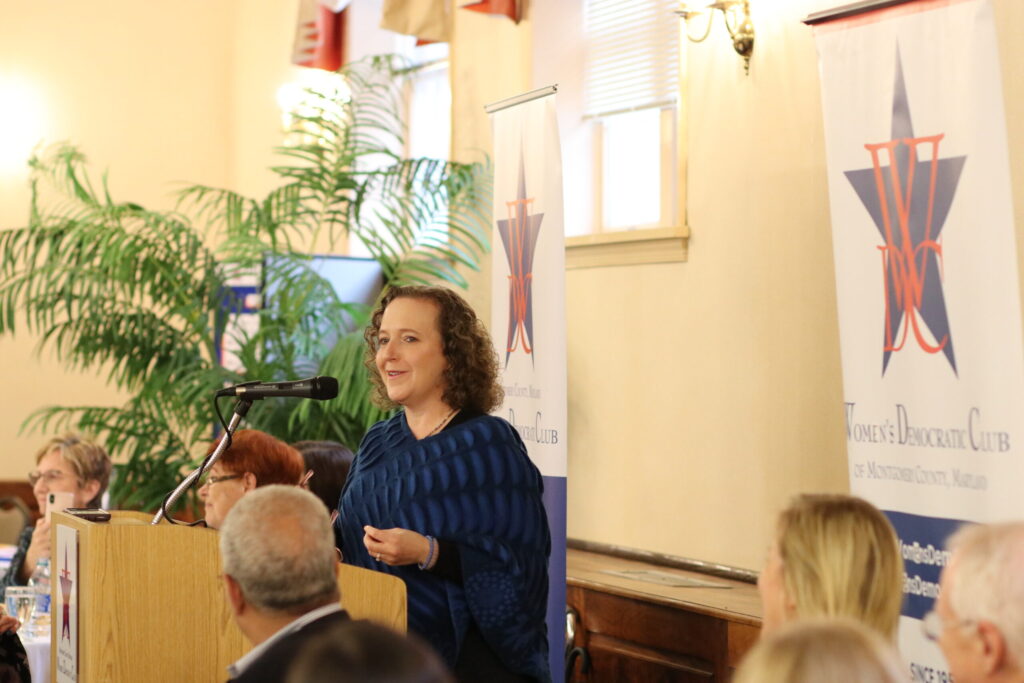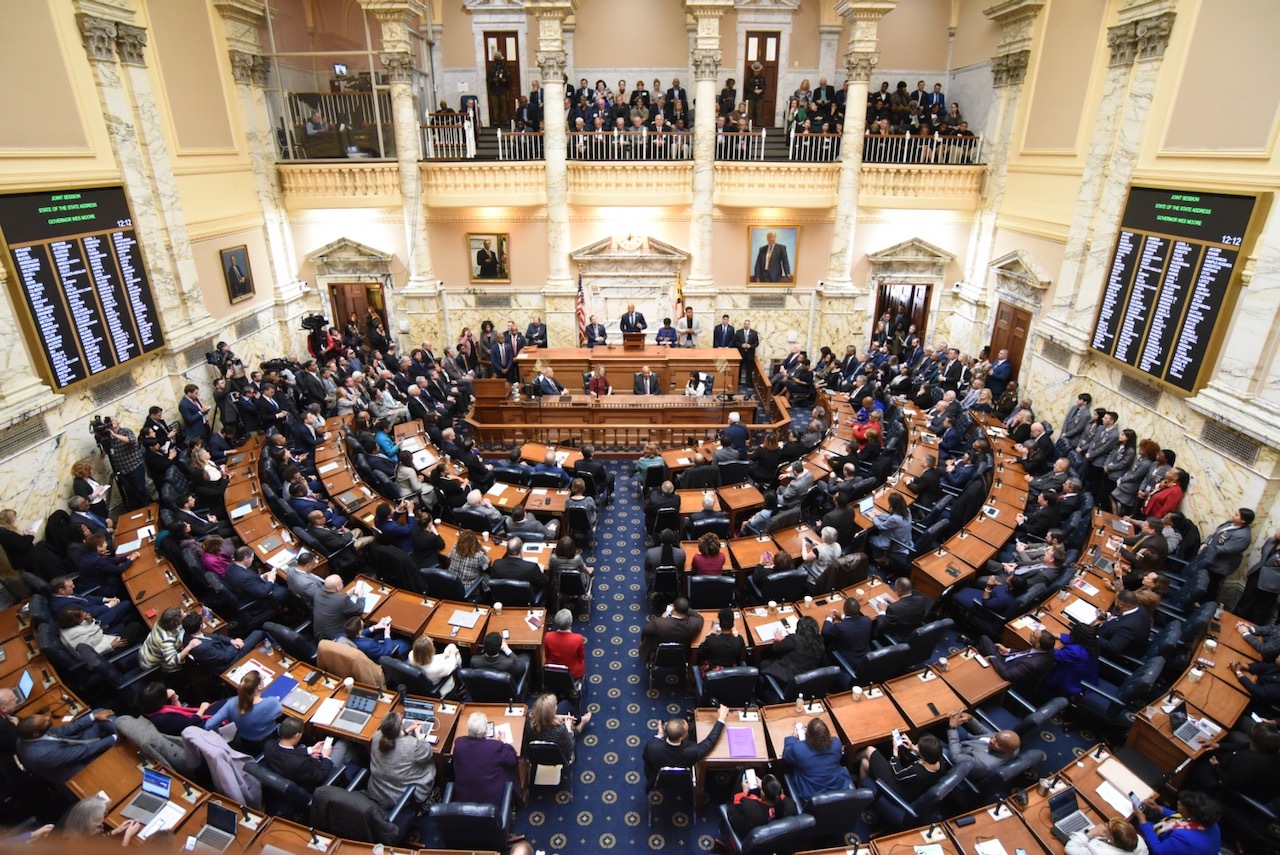AG: Contested commission vote on new degree program is of ‘no legal effect’ after procedural errors

A vote in June by the Maryland Higher Education Commission to allow Towson University to create a new business analytics doctoral program wasn’t conducted properly, according to an advice letter Thursday from the Office of the Attorney General.
The letter sent to new Commission Chair Catherine “Cassie” Motz states that the previous commissioners’ 4-3 vote “was of no effect” because a majority of the 12 board members were needed to either vote in favor or against the proposal.
Patrick B. Hughes, chief counsel for opinions and advice in the attorney general’s office, concluded that the commission had not followed the proper process and, thus, that the commission’s decision was moot.
Before the June 14 closed-meeting vote, Emily Dow, assistant secretary for academic affairs with the commission also known as MHEC, had concluded that Towson’s program would be duplicative of Morgan State University’s business administration doctoral program. Dow concluded in April that Towson’s request for the new degree program should be denied.
Morgan State, one of the state’s four historically Black colleges and universities, is located in Baltimore and about five miles away from Towson.
Hughes wrote in Thursday’s advice letter that, in his view, the previous decision made by Dow “remains in place, at least for the time being.”
He suggested the commission should meet again to resolve Towson’s appeal, and record a majority vote either for or against the degree proposal.
Hughes wrote that he was not concerned that the dispute has pushed a decision beyond the commission’s established timeline. Although the commission met within 60 days from Dow’s decision in April and then voted within 10 days of the June 14 special meeting to review Towson’s program, Hughes said in the letter the commission’s voting rules are from its own regulations and not from a statute.
Workgroup sets sights on ways to fix long-running degree duplication concerns at Maryland colleges
“Because the rule appears to be in the nature of a procedural rule adopted for the orderly transaction of agency business, I doubt that the expiration of the Commission’s regulatory timeline to act deprives it of authority to make a final decision on review of the Secretary,” he wrote. “As I read the Commission’s regulations, the Commission is likely required to meet again and attempt to resolve Towson’s request for review, with the requisite number of votes for a decision one way or the other. Although this is not an official opinion of the Attorney General, I hope it is helpful to you.”
Sean Welsh, a spokesperson with Towson, said in an email Thursday evening that MHEC’s “administrative error” doesn’t indicate Towson’s program is duplicative of any other program.
“We remain absolutely committed to supporting those students who have, in good faith, enrolled in this program as classes are set to begin in less than two weeks,” he said. “When students lose opportunities, there are no winners.”
Del. Jheanelle Wilkins (D-Montgomery), who chairs the Legislative Black Caucus of Maryland, said in a statement the commission’s new leadership took concerns from Morgan State and the caucus “seriously.”
“Our concerns with the Maryland Higher Education Commission’s (MHEC) process of approving a business analytics doctoral program that faced objection were validated by the Office of the Attorney General,” Wilkins said. “The Legislative Black Caucus of Maryland commends Morgan State University for its leadership and their demand for fairness. We will continue to work alongside our Maryland HBCUs to advocate for equity.”
The letter comes as Motz and four new commissioners met for the first time Aug. 9. Two more weren’t present for the online meeting. All were appointed last month by Gov. Wes Moore (D).
An eighth board member, Rebecca Taber Staeheline, was also appointed by Moore earlier this year and later confirmed by the Senate.
The governor will need to appoint a ninth member because of a vacancy created in July.
Morgan State President David K. Wilson and other HBCU supporters argued that the 4-3 vote made in June by the previous MHEC board goes against the spirit of a $577 million settlement passed into law two years ago to resolve a long-running legal dispute over unnecessary degree duplication that could siphon students from historically Black schools.
The law also required the state to study the “capacity and capability of MHEC to conduct academic program reviews under current policies and practices.”
A work group formed by the General Assembly this year will continue meeting to assess MHECs degree approval process.
Dow said at a meeting earlier this week that new degree proposals in Maryland are rarely challenged by another institution and even fewer require a resolution by a vote of the commission.
Since 2017, there have been more than 3,7000 proposals for new or modified degrees; 17 have been reviewed by the commission after an objection by another institution.
David Burton, a member of the Coalition for Equity and Excellence in Maryland Higher Education and a plaintiff in the lawsuit filed in 2006, said in an interview Thursday about the continued concerns about degree duplication: “if it looks like a duck [and] quacks like a duck, then it must be a duck.”




 Creative Commons Attribution
Creative Commons Attribution